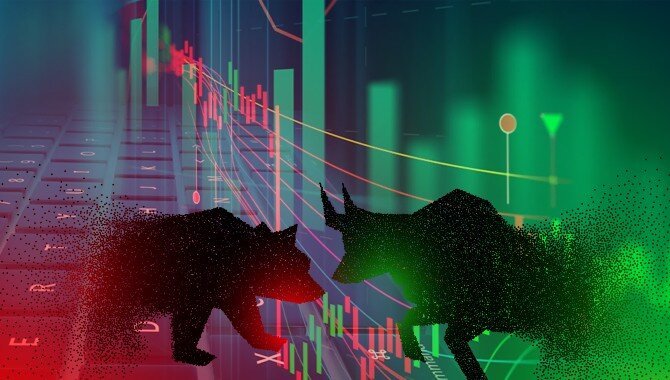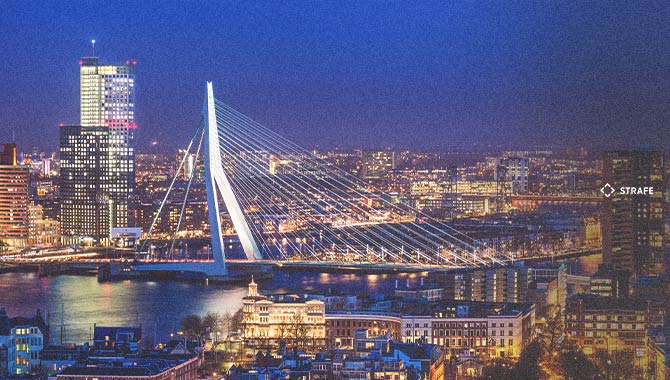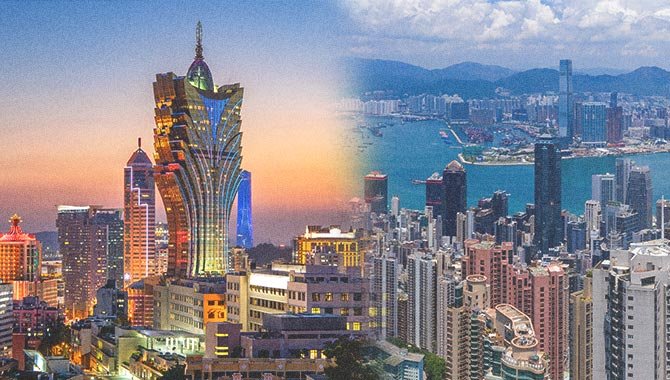
When discussing our industry, we throw out a lot of company names, but sometimes it’s useful to stop and put a face to them – or in this case, a price tag.
Gaming as an industry is continuing to grow, and despite macro-economic headwinds, companies continue to perform well.
But as we emerge from a pandemic and, if economists’ projections are to be believed, ride headfirst into a recession, which companies are currently on top and for how long will it stay that way?
To this end, we have broken down the top 10 gambling companies by market cap; offering a quick overview of their current financial situation and outlook.
10. Française des Jeux (FDJ) – €5.97bn (US$5.97bn)
Perhaps, to many people’s surprise, French national lottery operator FDJ has eked out a spot on this list. Like many land-based businesses, Covid-19 took a heavy toll on FDJ, but it has since executed a rebound. However, while its revenue has recovered, shareholders’ confidence has not. On a year-to-date basis, FDJ’s stock price has fallen, dropping from almost €39 to less than €32.
Currency fluctuations have naturally impacted the company’s market cap, especially given the current euro to dollar exchange rate, but a long-term pattern of diminished confidence indicates a more intrinsic problem: people do not see FDJ as a worthwhile investment. The company has struggled to regain shareholders’ trust after being hit by several headwinds in mid-2021, including an EU probe and Goldman Sachs downgrading its rating from “neutral” to “sell.”
However, market conditions are generally unfavourable right now and to earn a spot on this list is an indication that FDJ is doing something right. Ultimately, the company continues to support good causes, its primary goal as France’s national lottery operator.
Wynn Resorts’ story is a tale of two cities: Las Vegas and Macau. While the former has undergone a tremendous recovery from Covid-19, the latter continues to limp from one problem to another
9. Wynn Resorts – US$7.44bn
Wynn Resorts’ story is a tale of two cities: Las Vegas and Macau. While the former has undergone a tremendous recovery from Covid-19, the latter continues to limp from one problem to another. Most pundits don’t foresee a recovery for Macau until at least next year, and that’s if further complications do not arise.
Until this occurs, Wynn Resorts will have to hope shareholders can stick it out, relying on the company’s confidence in an eventual turnaround. But despite CEO Craig Billings’ optimism, his words may fall on increasingly deaf ears. Wynn Resorts’ stock price has ebbed and flowed in 2022. At the time of writing, it sits at US$64.02; a mild uptick when compared to last month.
However, this constitutes a considerable downturn when compared to the over US$80 its stock price opened at this year. But many analysts seem to share Billings’ optimism, albeit more cautiously. This may change if fears of a recession become a reality, but for now, the company’s position is relatively secure.
8. Entain – £7.2bn (US$8.2bn)
Entain is our first predominantly online operator, and one that has grown considerably in the past few years. But Entain’s stock is currently valued at just over £12, having fallen from nearly £17 at the start of 2022.
This is likely the result of a post-pandemic market stabilisation. As land-based operators return, Entain’s online business has, consequently, suffered. Don’t take our word for it; Entain has commented on this phenomenon itself. The company’s Q2 results reflected, what it called, “tough 2021 comparators.”
A withdrawal from the Netherlands has also impacted Entain’s performance, as well as tighter affordability measures in the UK. But improved retail trading has helped the company continue to grow and outperform analysts’ expectations.
Currently, most pundits predict a healthy growth trajectory for Entain, and one it seems determined to meet despite what CEO Jette Nygaard-Andersen called an “uncertain” macro-economic outlook.
DraftKings is still very much a new kid on the block, but its youthful energy has helped the company carve out a commanding position in the US sports betting market. However, DraftKings might benefit from the age-old proverb: slow and steady wins the race
7. DraftKings – US$8.34bn
DraftKings is still very much a new kid on the block, but its youthful energy has helped the company carve out a commanding position in the US sports betting market. However, DraftKings might benefit from the age-old proverb: slow and steady wins the race.
In its quest to conquer the United States, DraftKings has spent a fortune on marketing and promotional offers. While the company has recorded double-digit top-line growth, DraftKings’ bottom line has born the brunt of its expenditure.
Q2 saw the company generate US$466m in revenue, but after deducting all costs, DraftKings reported a net loss of US$217m. Nevertheless, shareholder confidence has not wavered. Following the publication of DraftKings’ second quarter results, its share price actually rose.
Whether investors will continue to support the company’s strategy, especially as a recession looms, is perhaps less likely – but, for now, DraftKings seems content to spend, spend, spend.
6. Caesars Entertainment – US$9.67bn
Caesars, like many land-based operators, saw a surge in visitors after Covid restrictions were lifted. But, while its revenue has rebounded, investors’ confidence has unfortunately not. Caesars’ Q2 results triggered a short-lived stock bump, but on a year-to-date basis, the company’s share price has fallen from over US$89 to less than US$45.
However, this may be a mild hiccup given Caesars’ recent financial results and broader ambitions. Many analysts believe now is the time to buy Caesars’ stock, which may be sound advice if the company’s historic performance is anything to go by. Newer ventures will also offer additional revenue sources, such as Caesars’ foray into online sports betting.
Like many land-based operators, Caesars is attempting to capitalise on iGaming, though when it comes to wagering, has proven less successful than MGM Resorts. However, the company’s bread and butter is, and for the foreseeable future will be, its brick-and-mortar casinos.
5. MGM Resorts – US$13.11bn
MGM Resorts is a predominantly land-based operator with both Las Vegas and Macau operations, like Wynn Resorts. However, the similarities end there.
MGM Resorts’ operations in Las Vegas have helped offset a decrease in Macau revenue, resulting in an overall year-on-year increase of US$1bn for Q2. Where Wynn Resorts was hampered by Macau, MGM has managed to mitigate the effects.
As a result, the company’s slow climb back from Covid-19 has continued. In March 2020, amid widespread lockdowns and closures, MGM Resorts’ share price plummeted to less than US$10. However, at the time of writing, it is now worth more than US$33.
4. Aristocrat – AU$22.77bn (US$15.2bn)
Our next entry on this list is an Australian company and the first supplier. Aristocrat has narrowly missed out on a medal, posting fourth overall in terms of market cap. However, the runner up will likely feel little dismay given its considerable growth over the past five years.
As a manufacturer of gambling machines, Aristocrat was understandably hit hard by Covid-19, but like so many other companies, has executed a comeback. While Aristocrat’s share price has dropped since reaching a high of more than AU$48 late last year, it has largely returned to pre-pandemic levels.
3. Evolution Gaming – SEK 179.73bn (US$16.6bn)
We have now reached the final three. Evolution has earned itself a bronze medal, but the Swedish supplier’s lead over Aristocrat is fairly narrow.
Evolution’s evolution corresponds to the growth of online gaming more broadly, and in particular, live casino. Whether it can sustain this growth as land-based gaming returns, remains to be seen, but the company continues to post impressive quarterly results.
Nevertheless, Evolution’s stock is fairly unstable. On a long-term basis, the supplier’s share price has risen considerably, but since peaking last year, has been on a downward trajectory.
This trend looks set to continue, but it will at some point have to stabilise. However, when this will occur is hard to say and the current macro-economic outlook does not favour a plateau anytime soon.
2. Flutter Entertainment – £18.38bn (US$20.9bn)
Representing Ireland in the silver medal position is Flutter Entertainment. The bookmaker maintains a commanding position in both the UK and US betting markets, latterly through its FanDuel brand, so it comes as no surprise to see Flutter sitting pretty in second place.
At the time of writing, the company’s share price stands at nearly £104, and has, in recent months, reported sustained healthy growth. Flutter also completed the acquisition of Sisal last month, extending its dominance to Italy.
Consequently, the company is primed for future growth, with most analysts recommending investors “buy.”
1. Las Vegas Sands – US$29.53bn
Finally, we come to first place. While online gaming has grown in recent years, and despite Macau’s troubles, Las Vegas Sands (LVS) remains number one in terms of market cap – but will the king keep his crown for much longer?
LVS stock has yet to return to pre-pandemic levels. Currently, the company’s share price is just over US$38, a considerable decrease when compared to the almost $70 it was worth in February 2020. While LVS experienced a slight rebound in March of last year, the company’s share price has, by and large, been on a downward trajectory ever since.
Ultimately, the company’s fortunes are tied to those of Macau, and consequently, the city’s recovery from Covid-19. But even though LVS remains confident that visitor levels will return to pre-pandemic norms, it may well be a while yet before Macau truly emerges from the pandemic.
A more pressing issue is whether investors share the company’s confidence, and whether they have the means, or willpower, to wait out this storm – especially as another is brewing on the horizon.
Conclusion
All-in-all, there are a few surprising faces here, but mostly they’re who you would expect. There is a nice balance of online and land-based, but whether this balance will be maintained in a years’ time is hard to say. There is a lot riding on Macau’s recovery, especially for Wynn Resorts and LVS, as well as MGM Resorts to a lesser extent. If the city takes too long to recover, Wynn Resorts and LVS may find themselves moving down a place or two.



